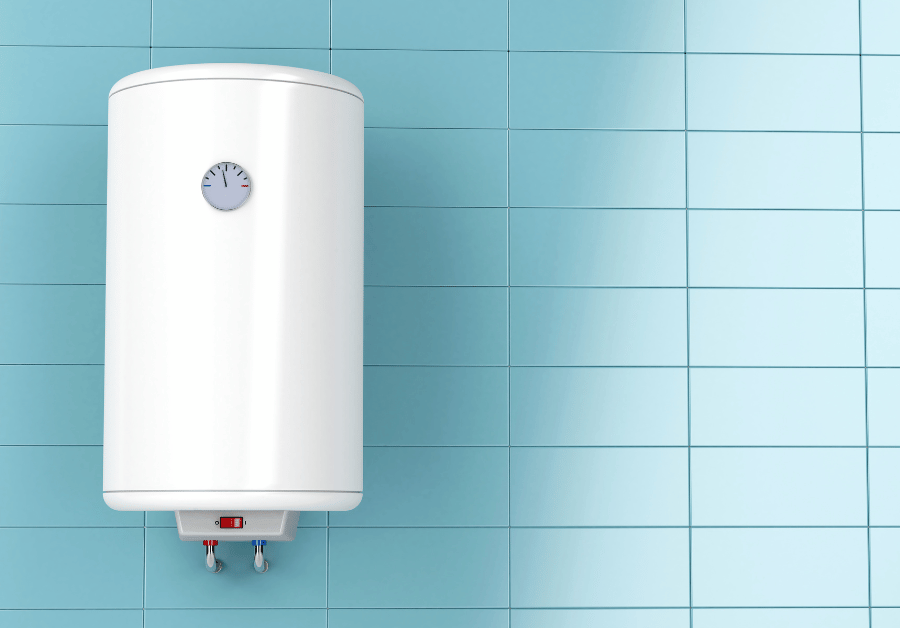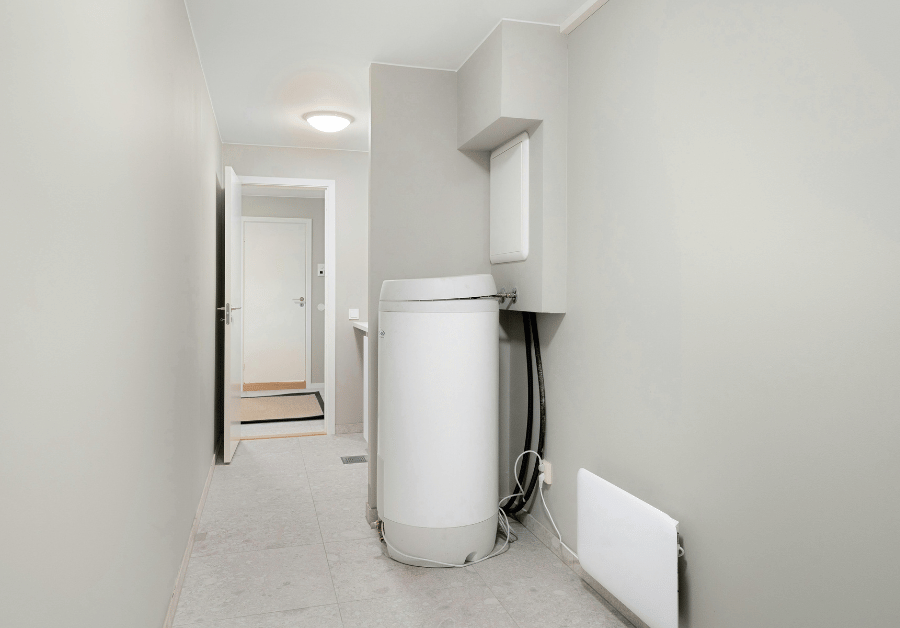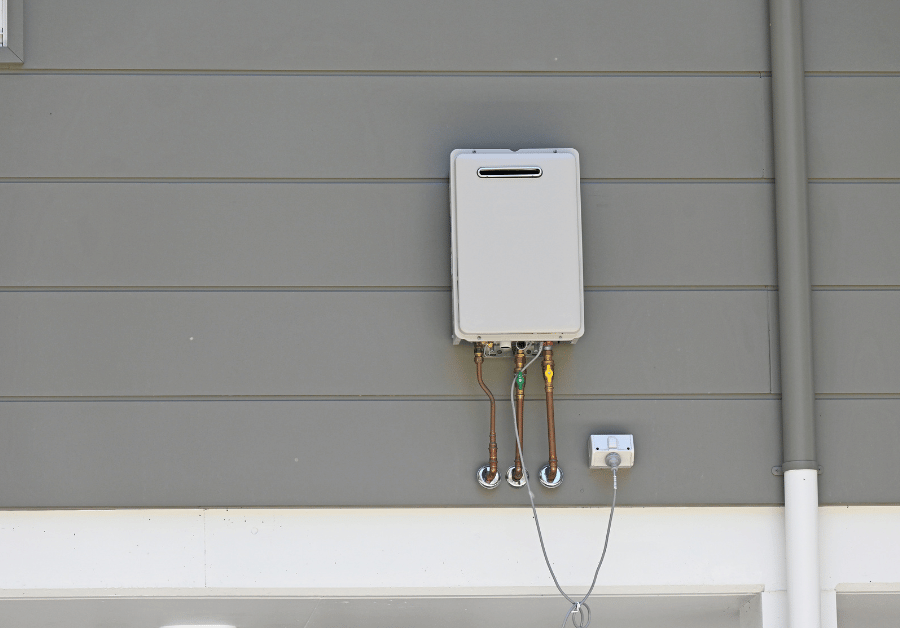Electric Hot Water Services: Your Comprehensive Australian Guide
Is your morning shower turning into an unexpected ice bath? Or are you simply looking to upgrade your home’s hot water system for better efficiency and reliability? In Australia, especially across bustling cities like Sydney, Melbourne, Perth, Brisbane, Adelaide, and Hobart, reliable hot water isn't just a luxury – it's a daily necessity. When it comes to ensuring a consistent supply, electric hot water services are often the go-to solution for countless homes and businesses.
At Get 3 Quote, we understand the critical role a dependable hot water system plays in your comfort and daily routine. That's why we've put together this comprehensive guide to electric hot water services, designed to help you navigate everything from choosing the right system to understanding installation, maintenance, and vital repairs. We connect you with trusted local plumbers and professionals who provide top-tier hot water solutions right across Australia. Let's dive in and ensure your hot water needs are always met!
Why Choose Electric Hot Water Systems for Your Australian Home?

Electric hot water systems have long been a popular choice across Australia for a multitude of reasons. They're reliable, widely available, and generally simpler to install compared to gas alternatives if you already have suitable electrical infrastructure. For many homeowners in Sydney, Melbourne, Perth, Brisbane, Adelaide, and Hobart, an electric hot water system offers a straightforward and dependable way to heat water.
Here’s why electric hot water remains a strong contender:
- Availability: Electricity is readily available in almost every Australian home, making electric hot water systems a universally accessible option.
- Cost-Effective Installation: While running costs can vary, the initial installation of a standard electric storage hot water system can often be less complex and therefore more affordable than gas or solar options, especially if existing electrical connections are sufficient.
- Flexibility: Electric hot water tanks can be installed indoors or outdoors, offering flexibility in placement depending on your property's layout and space constraints.
- Reliability: Modern electric hot water systems from leading brands like Rheem, Rinnai, Dux, Aquamax, and Bosch are built for durability and consistent performance, providing reliable hot water service for years.
- Simplicity: They are relatively simple in design and operation, which often translates to fewer complex components that could fail.
Whether you're replacing an old unit or considering a new installation, understanding the various types of electric hot water systems is your first step towards making an informed decision for your property's hot water needs.
Understanding Different Electric Hot Water Systems
When we talk about electric hot water systems, it's important to recognise that there isn't just one type. Each offers distinct advantages, catering to different household sizes, energy consumption habits, and budget considerations. Let's explore the primary categories:
1. Electric Storage Hot Water Systems
These are perhaps the most common type of electric hot water system in Australia. They consist of an insulated tank that stores and heats a specific volume of water, keeping it ready for use. Once the hot water is drawn, the tank refills and reheats.
- How they work: An electric element inside the tank heats the water to a set temperature. The tank's insulation helps maintain this temperature, reducing the need for constant reheating.
- Pros: Simple to install, widely available, reliable, and generally have a lower upfront cost. They are great for homes with consistent hot water demand.
- Cons: Can be less energy-efficient than other options due to standby heat loss and continuous heating. Tank size is a limiting factor; once the hot water is used up, you have to wait for it to reheat.
- Ideal for: Most family homes across Adelaide, Perth, Brisbane, and other major cities, especially where initial budget is a key consideration.
2. Electric Continuous Flow (Instantaneous) Hot Water Systems
Unlike storage tanks, continuous flow hot water systems heat water on demand, meaning you only pay for the energy used when you actually turn on the hot tap. There's no tank, so no standby heat loss.
- How they work: Cold water flows through a heating unit when a hot tap is opened. The electric elements rapidly heat the water as it passes through, providing a continuous supply.
- Pros: Highly energy-efficient as they only heat water when needed, compact size saves space, and offer an endless supply of hot water. Excellent for larger families or homes with high, intermittent hot water use.
- Cons: Higher upfront cost than storage systems, and may require a significant electrical upgrade to your home's wiring due to high power draw. Can sometimes have a slight delay before hot water arrives.
- Ideal for: Modern homes in Sydney or Melbourne where space is at a premium and energy efficiency is a priority, or for those who never want to run out of hot water.
3. Electric Heat Pump Hot Water Systems
Often considered the most energy-efficient electric hot water system, heat pump hot water heaters don't directly generate heat. Instead, they extract heat from the surrounding air (like a reverse refrigerator) and transfer it to the water in an integrated storage tank. This makes them significantly more efficient than conventional electric storage units.
- How they work: A fan draws in ambient air, which passes over an evaporator coil containing a refrigerant. The heat from the air causes the refrigerant to evaporate. This gas is then compressed, increasing its temperature, and passed through a condenser coil, where the heat is transferred to the water in the tank.
- Pros: Extremely energy-efficient (up to 3-4 times more efficient than standard electric systems), leading to significant long-term savings on electricity bills. Eligible for various government rebates in many Australian states (e.g., in South Australia, Queensland, NSW).
- Cons: Higher upfront cost, require specific ambient temperatures to operate optimally (though modern units perform well in varied climates), and need good airflow around the unit. Can be noisy.
- Ideal for: Environmentally conscious homeowners across Brisbane, Adelaide, Hobart, and other regions seeking the lowest running costs and willing to invest more initially. They are a fantastic way to save energy.
Electric Hot Water Systems: A Quick Comparison

| Feature | Electric Storage | Electric Continuous Flow | Electric Heat Pump |
|---|---|---|---|
| Upfront Cost | Lowest | Medium to High | Highest |
| Running Cost / Energy Efficiency | Highest (Least Efficient) | Medium (Efficient on demand) | Lowest (Most Efficient) |
| Hot Water Supply | Limited by tank size | Continuous / Unlimited | Limited by tank size |
| Space Required | Moderate to Large Tank | Compact, Wall-Mounted | Large (Integrated Tank + Unit) |
| Installation Complexity | Simple | Moderate (often requires electrical upgrades) | Moderate (requires good airflow) |
| Environmental Impact | Higher Carbon Footprint | Lower Carbon Footprint | Lowest Carbon Footprint |
| Common Brands | Rheem, Dux, Rinnai, Vulcan, Aquamax | Rinnai, Bosch, Rheem | Rheem, Dux, Rinnai, Aquamax, Bosch |
Electric Hot Water System Installation and Replacement
Whether you're building a new home, renovating, or simply need a hot water replacement for an old, failing unit, proper hot water system installation is paramount. This is not a DIY job; it requires licensed plumbers and often electricians to ensure safety, compliance with Australian standards, and optimal performance.
Choosing the Right Size
One of the most critical decisions is sizing your new electric hot water system. An undersized unit will leave you with cold showers, while an oversized one wastes energy. Factors to consider include:
- Number of occupants in your home (e.g., a single person vs. a family of five in Perth).
- Number of bathrooms and hot water outlets.
- Your hot water usage habits (e.g., long showers, frequent laundry loads).
- Climate: Colder climates like Hobart might necessitate a larger tank or more efficient system.
An experienced plumber can assess your specific needs and recommend the best hot water system size and type for your Adelaide, Brisbane, or Sydney home.
The Installation Process
A professional installation typically involves:
- Site Assessment: Evaluating the best location for the new tank or unit, ensuring adequate space, ventilation (for heat pumps), and accessibility for future hot water service and repairs.
- Disconnection and Removal: Safely disconnecting and removing your old hot water system, including proper disposal.
- New System Placement: Positioning the new electric hot water tank or continuous flow unit.
- Plumbing Connections: Connecting the hot and cold water lines securely.
- Electrical Connections: A licensed electrician handles the wiring, ensuring it meets safety standards and the unit receives adequate power. This is especially crucial for high-draw continuous flow or heat pump systems.
- Testing and Commissioning: Filling the tank, checking for leaks, verifying heating elements work, and ensuring the system operates correctly.
- Compliance: Issuing a Certificate of Compliance (or similar documentation) as required by local authorities in your state (e.g., NSW, VIC, SA).
When you're looking for hot water system installation, Get 3 Quote connects you with verified local plumbers and electricians who are experts in electric hot water services. They ensure your installation is safe, efficient, and compliant.
Electric Hot Water Repairs and Maintenance
Even the most robust electric hot water systems will eventually require attention. Regular hot water service and prompt hot water repairs are essential to extend the life of your unit, maintain energy efficiency, and prevent unexpected cold showers.
Common Hot Water Issues Requiring Repair
If you're experiencing problems with your electric hot water, it’s best to call a professional. Common issues include:
- No Hot Water: This could be due to a tripped circuit breaker, a faulty heating element, thermostat issues, or even a power outage.
- Insufficient Hot Water: The tank might be too small for your needs, or there could be a partial heating element failure or sediment build-up.
- Leaking Tank: A leaking hot water tank is a serious issue that often indicates the tank itself has corroded and requires a full hot water replacement. Don't delay calling for emergency plumbing services if you notice a leak.
- Strange Noises: Rumbling, popping, or banging sounds can indicate sediment build-up in the tank, which reduces efficiency and can damage the unit.
- Discoloured or Smelly Water: This could point to bacterial growth, anode rod issues, or corrosion within the tank.
- Pilot Light Out (for gas hot water systems - though less common for electric, it's a common hot water repair query): While primarily for gas, it's worth noting the distinction. Electric systems have heating elements, not pilot lights.
For any of these issues, especially in busy cities like Melbourne, Perth, or Brisbane, finding a reliable hot water plumber quickly is key. Our platform can help you find local plumbers skilled in electric hot water repairs Adelaide trusts, or any other major Australian city.
Preventative Maintenance for Your Electric Hot Water System
A little preventative care goes a long way. Regular maintenance can significantly extend the lifespan of your electric hot water system and ensure it operates efficiently.
- Temperature and Pressure Relief (TPR) Valve Testing: This critical safety valve should be tested annually by a licensed plumber to ensure it's functioning correctly and preventing dangerous pressure build-up.
- Anode Rod Inspection/Replacement: The anode rod helps protect the tank from corrosion. It should be inspected every 3-5 years and replaced if significantly corroded.
- Flushing the Tank: Draining and flushing the tank annually helps remove sediment build-up, which improves efficiency and prevents strange noises. This is especially important in areas with hard water.
- Inspecting for Leaks: Regularly check around the base of the tank and connections for any signs of water leaks.
By investing in professional hot water services for maintenance, you can save money on emergency repairs and ensure your system provides consistent hot water for years to come.
Energy Efficiency and Running Costs of Electric Hot Water Systems
While electric hot water systems are often seen as less energy-efficient than gas or solar, advancements in technology, particularly with heat pump hot water heaters, have significantly improved their performance. Understanding the energy efficiency of your system is crucial for managing your household budget.
Optimising Energy Use
- Off-Peak Tariffs: Many electric storage hot water systems can be connected to off-peak electricity tariffs, allowing them to heat water during periods when electricity is cheaper (usually overnight). This can significantly reduce your running costs. Discuss this option with your energy provider and a licensed electrician.
- Insulation: Ensure your hot water tank is well-insulated. Newer models come with excellent insulation, but older tanks might benefit from an insulation blanket. Insulating hot water pipes also reduces heat loss.
- Correct Sizing: As mentioned, choosing the right size for your hot water system prevents unnecessary energy consumption.
- Consider a Heat Pump: If energy savings are your top priority, especially in a suitable climate like much of South Australia, a heat pump hot water system is arguably the best hot water system option, offering substantial energy rebates and long-term savings.
- Solar Hot Water Integration: For ultimate energy efficiency, consider a solar hot water system with an electric booster. This combines the power of the sun with the reliability of electric backup.
Calculating the exact cost of running an electric hot water system can be complex as it depends on your electricity tariff, household size, water usage habits, and the specific model's energy efficiency. However, a professional plumber or energy expert can provide advice tailored to your home in Adelaide, Hobart, or wherever you are in Australia, helping you save energy and money.
Choosing the Right Professionals for Your Electric Hot Water Services
When it comes to hot water, you need reliable, experienced, and trustworthy professionals. Whether it's a new system installation, urgent hot water repairs, or routine maintenance, selecting the right team is crucial. This is where Get 3 Quote shines.
Why Trust Get 3 Quote for Your Hot Water Needs?
We simplify the process of finding qualified experts for all your electric hot water services across Australia, including Sydney, Melbourne, Perth, Brisbane, Adelaide, and Hobart. Here’s how we ensure you get the best match:
- Tell Us What You Need: Fill out our simple online form. Describe your hot water service needs – whether it's a new electric hot water system, a repair for your existing unit, or general plumbing services. Our user-friendly platform makes it easy to communicate your requirements.
- Get Quotes from Professionals: We connect you with up to 3 detailed quotes from verified local professionals in your area. These are expert plumbers and electricians who specialise in hot water systems, ensuring you receive competitive and transparent pricing.
- Choose the Best Match: Compare quotes, read reviews from other customers, and review professional profiles to find the perfect plumber for your job. Our network includes highly rated professionals who pride themselves on great customer service and reliable work.
We understand that an emergency hot water repair can't wait. Our platform is designed to help you find available plumbers fast, ensuring you get the help you need, when you need it. We connect you with a team of reliable plumbers and electricians ready to install, repair, or replace your hot water tank or system.
Your Trusted Partner for Electric Hot Water Services Across Australia
From the bustling streets of Sydney and Melbourne to the vibrant communities of Perth, Brisbane, Adelaide, and the charming capital of Hobart, reliable hot water is a cornerstone of comfortable living. Whether you need a brand-new electric hot water system, urgent hot water repairs, or comprehensive hot water service and maintenance, finding the right professional is easy with Get 3 Quote.
We pride ourselves on connecting you with experienced, expert, and trustworthy local plumbers and electricians who understand the unique hot water needs of Australian homes and businesses. Don't let a faulty hot water system disrupt your life. Get the best hot water service with confidence.
Ready to get your hot water sorted?
Visit Get 3 Quote today to tell us what you need and receive up to 3 detailed quotes from verified local professionals in your area. Your perfect hot water solution is just a few clicks away!
